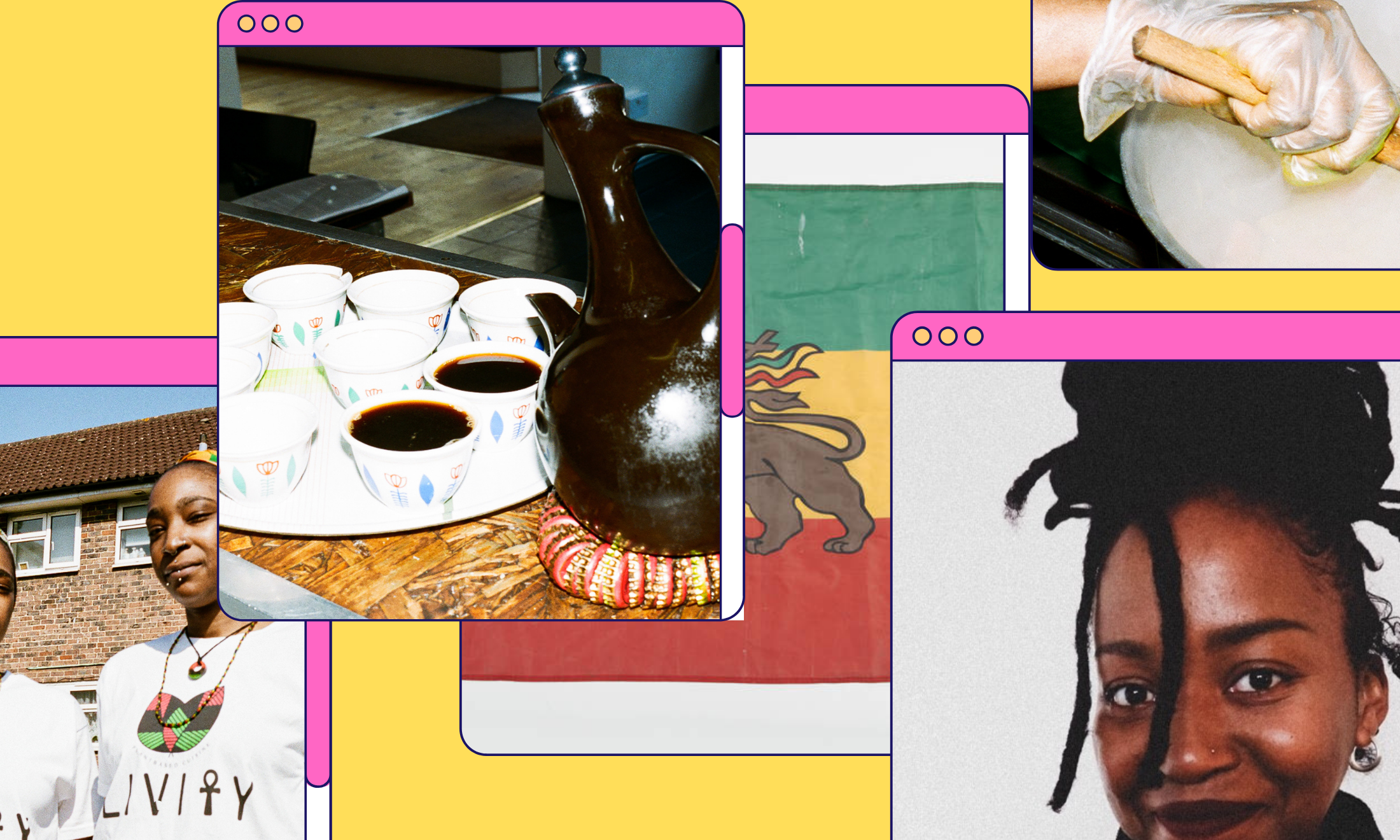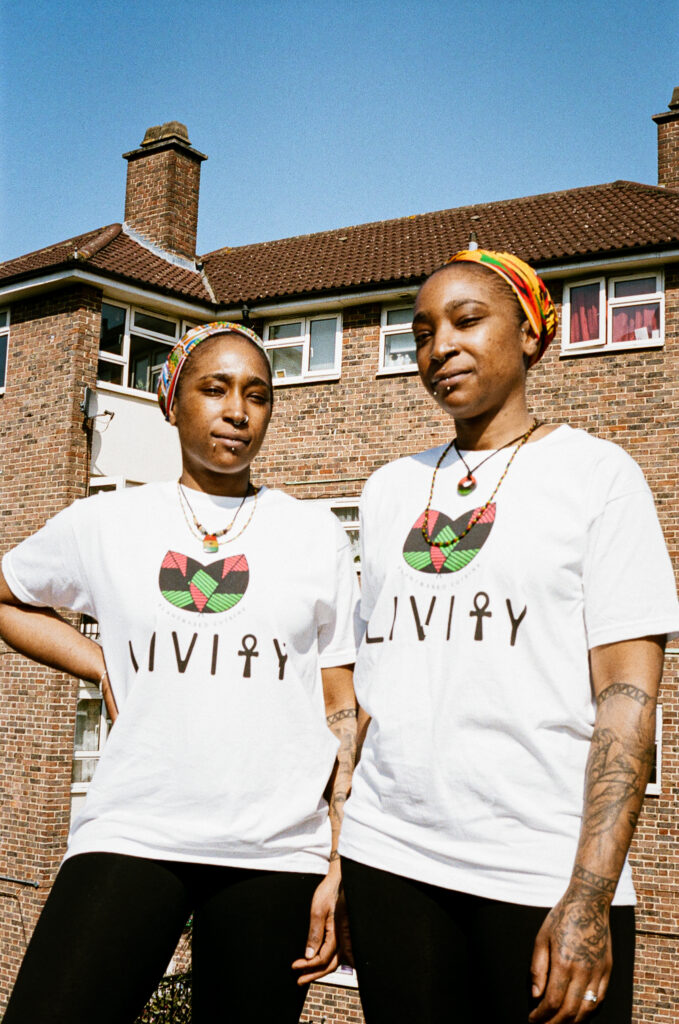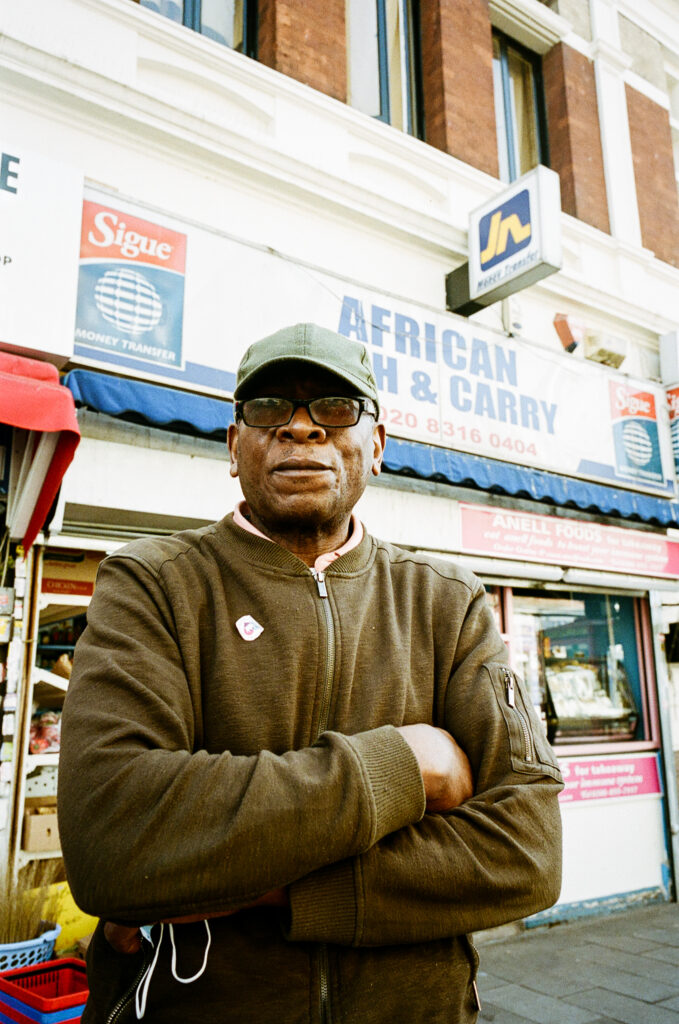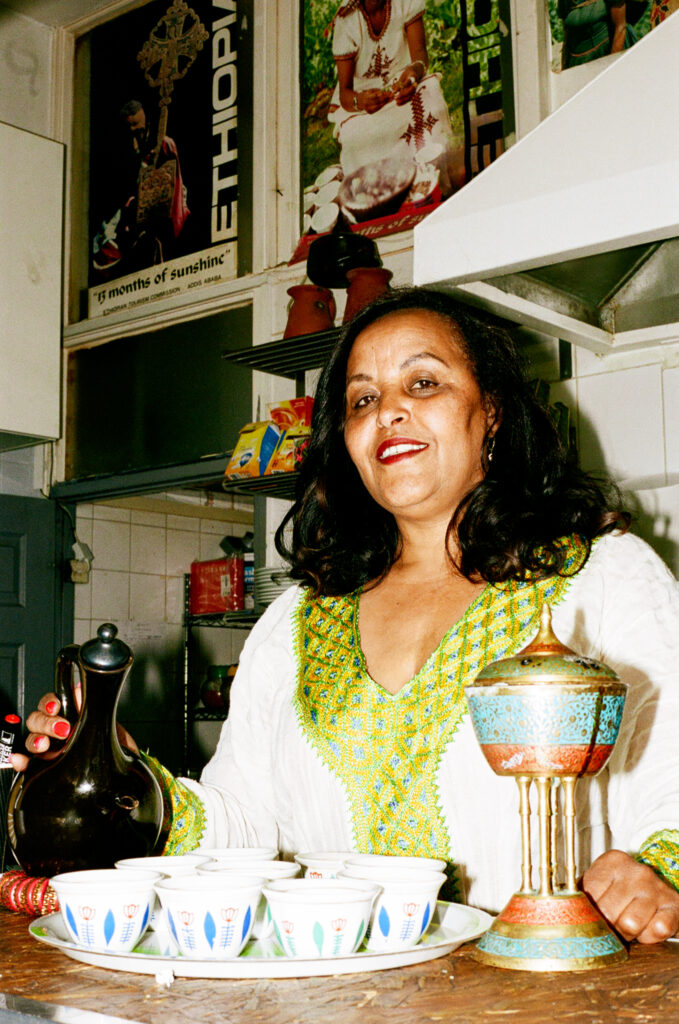Feast your eyes on Aleema Gray: a history curator championing Blackness through food
Aleema Gray talks about her debut display on food and community 'Feeding Black' and her research into the political history of the Rastafarian movement.
Marcia Veiga
14 Aug 2021

photography by Jonas Martinez / Museum of London
Solange Knowles once stated in an interlude, “Do nothing without intention”, and shortly into our video chat it’s clear that Aleema Gray is a mindful strategist. Despite growing up between two continents – in bustling London, UK and rural Portland, Jamaica – community, power and place stay at the forefront of her mind.
Aleema Gray juggles many hats: not only is she the co-founder of the Young Historians Project, launched in 2015, and a community historian curator for the Museum of London; she’s also one year away from graduating from the University of Warwick as a PhD History Researcher working on her final year project, ‘Bun Babylon: Rastafari movement in Britain’ an exploration into the colonial erasure of a religion. Described by her peers as an individual who brings humanity, humour and rigour to every assignment, her latest project Feeding Black: Community, Power & Place consummates her ability to represent the needs of an audience.
“I was raised Rastafarian, so my parents would constantly talk to me about decolonising the diet and Ital foods from a young age”
“My attitude was to dismantle any presumptions held of what a curator is,” says the 27-year-old, exuberantly explaining how the launch of the year-long display was received. After 18 months of preparation, the free exhibition shares personal objects, recipes, recorded stories of four food business owners and digital videos of traditional dishes cooked up with a contemporary twist.
In 2019, Aleema joined the Museum of London Docklands’ London, Sugar and Slavery permanent exhibition as a history curator and commends the museum for boldly exhibiting the UK’s transatlantic slave trade involvement. “They try to move beyond the white dominant approach and consider the legacies unfolding,” she says, “I’m given space to hone into the Black future of the gallery and plan on using it as a resource to make significant interventions.”
Situated in a warehouse that used to store sugar from the plantations in the Caribbean, the exhibition inspired her to consider food as one of the focal points of Blackness today; digging further into how people navigate space to survive, reconfigure and thrive.
Aleema believed that the only way the display was going to be an integral reflection of the community was by engaging with them in the process. So, she published a call-out sheet on the museum’s social media and mailing list asking, ‘where do you go in London when you think about Blackness today?’ She discovered that some residents of south-east London felt like they had nowhere to go, others pointed to their kitchen or barbershop. But one person put forth the idea of entrepreneurship that stirred her into focusing on the Black economy, and how Black business owners demonstrate various roles within their community – for instance, a Caribbean store owner described themselves as a social worker first and foremost.
“I remember when I first came to this country and everyone had packed lunches filled with Jammie Dodgers and ham sandwiches”
In her exhibition, Aleema showcased four businesses: Kareema and Kaleema Shakur-Muhammad, identical twins running the vegan restaurant Livity Plant-Based Cuisine from their living room and sometimes at street markets where they serve jerk oyster mushrooms in a Livity mix box with various flavours of sea moss gels; Brother Jr, the self-titled ‘Harrods of Woolwich’, admired for his dedication to his market stall; Tafeswork Belayneh, the owner of Zeret Kitchen, filled with traditional Ethiopian dishes, including their highly popular roasted, powdered and split lentil soup with assorted spices; and Eugene Takwa, founder of African Cash & Carry. “They’re all multi-dimensional and reflect different experiences within the African and Caribbean diaspora,” Aleema says, “I wanted to capture the mundane experiences that become normalised if you’re within the community but [are] widely overlooked by the masses.”
Although their businesses have gained more recognition for appearing in the exhibition, the realities of hustling in London meant that some of them are yet to visit the exhibition. For Aleema, this is the epitome of Feeding Black.
Throughout the creation process, Aleema placed herself into the role of an outsider from within – due to fears of inviting people in and essentialising them. “Museums tend to place people on a pedestal and magnify the culture which I’m thoroughly opposed to”, she explains. So, to combat this, Aleema unconsciously developed a guerrilla warfare tactic – common among Black curators – where you learn to adapt to your surroundings. She manages to balance appeasing an institution that wasn’t designed to reflect people like her, “while attempting to spotlight the community itself” – a form of ‘code-switching’.
“I hope that Feeding Black doesn’t become a marketing campaign that lose its sense of purpose”
While the popularised definition of code-switching emphasises the linguistic aspect, it transpires in day-to-day behavioural patterns to others. For instance, policing your thoughts because of your surroundings; which Aleema describes as tiring, especially considering she was taught to channel any emotion or fatigue into fuel earlier in her life.
“I was raised Rastafarian, so my parents would constantly talk to me about decolonising the diet and Ital foods from a young age, therefore, there was always a kind of connection that food wasn’t just about health and tradition but also factored environmentalism.” So, her approach for Feeding Black stirred towards embracing the power in the ordinary and pushing away from the exceptionalism agenda.
Among 7,906 Rastafarians in England and Wales recorded in the 2011 census, growing up in the mid-2000s as a Rastafarian with certain beliefs, a plant-based diet and dreadlocks, Aleema felt like a rarity, even between her fellow Caribbeans and Africans. “I remember when I first came to this country and everyone had packed lunches filled with Jammie Dodgers and ham sandwiches,” she reminisces, “but when a dinner lady saw mine filled with cashews and Ital stew with brown rice, she called my parents because she was worried about my diet.”
As we discuss the insider/outsider complexities brought about by being Black in school, I think about the day my mum packed Feijoada, a stew containing beans, beef and pork, for lunch. I remember being met with wide eyes and twisted mouths, until one particular eight-year-old blurted out, “That’s disgusting. It looks like glop.” From that day on, I ate school dinners like my fellow peers. Ultimately, it’s easy to see how what we eat impacts how we identify within the UK.
Now, with the recent influx of holistic practitioners, revivalism of growing your own, and up-swell of visibility of Black historians, Aleema is concerned about important information becoming diluted once it becomes institutionalised. “I hope that Feeding Black doesn’t become a marketing campaign and lose its sense of purpose but, nevertheless, inclusion is a double-edged sword,” she says.
Aleema doesn’t want to be described as nonconforming, innovative, or an activist for committing herself to preserving the histories of Black and Caribbean diasporas. She rationally explains that Feeding Black and Bun Babylon is a duty. An obligation, she feels, to scrutinise the institutions that don’t reflect her without regurgitating a celebratory narrative – instead, offering a platform to the lived experiences, cultures, and power Black communities can relate to.
Feeding Black: Community, Power & Place runs from 16 July 2021 – 17 July 2022.








